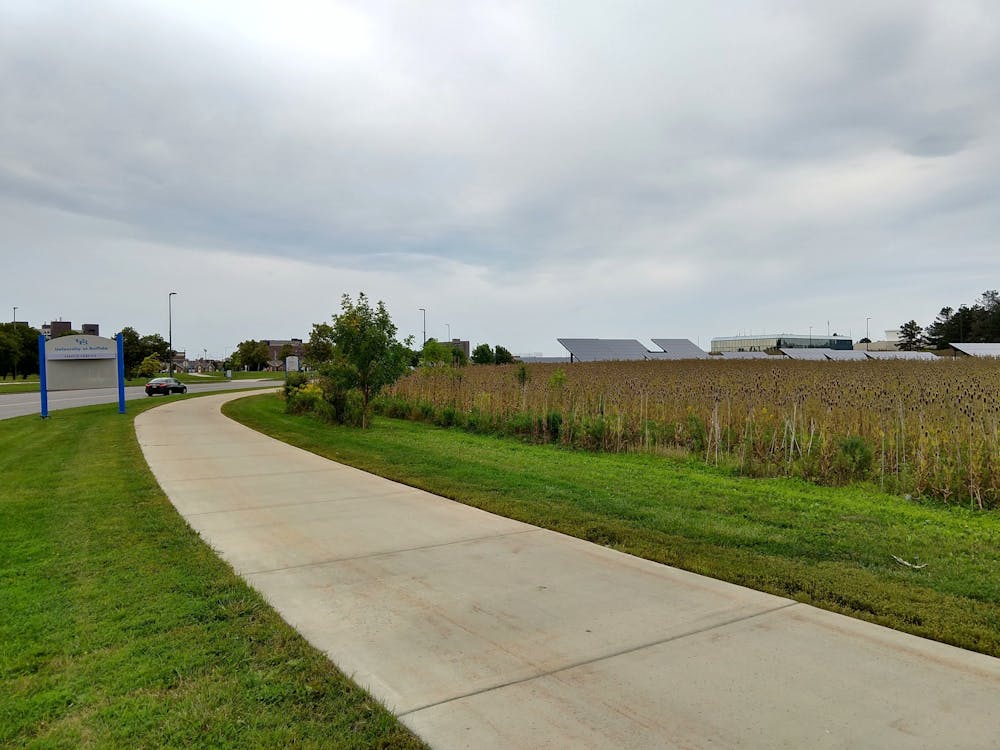UB is aiming to use 100% clean energy for its electricity by 2025 and to achieve net zero emissions by 2030 with its new Climate Action Plan.
Provost A. Scott Weber announced the plan during a Wednesday morning Zoom call to commemorate Earth Day, with roughly 250 UB community members present. The plan presents UB’s goals for the decade, including increasing renewable energy use, and sets a timeline for the projects. It includes strategies to shift to renewable sources of energy, transition to electric vehicles, implement carbon pricing, reduce material waste and increase student awareness and involvement, among other sustainable goals.
“[The strategies] increase climate action through the university and puts us on the path to net zero emission by 2030,” Weber said. “They were developed in a robust campus engagement process and include putting a price on carbon, electrifying our fleet, taking stock of our food, and greening our commute.”
UB’s Chief Sustainability Officer Ryan McPherson said the university will make “a lot of changes” across UB’s three campuses while transitioning to renewable energy. McPherson said UB is working toward installing “15 times” the current 3,200 solar panels on campus.
The plan also says UB will aim to eliminate all single-use plastics on campus by 2022, will start introducing carbon pricing and will work toward purchasing local offsets to make up for emissions that cannot be avoided –– like planting trees or investing in clean energy to make up for air travel.
UB will establish a task force this year to identify feasible carbon pricing models, according to UB’s Climate Action Plan website.
The plan also says by 2026, UB aims to have a carbon fee implemented on university-funded air travel, the Stampede, food and material waste and non-green commuting. These fees will be invested in local offset programs, such as planting trees or insulating homes. So far, UB has not shared specifics about the basis of the fee and who would be charged. The website says policies “will be developed.”
McPherson said the budget for the plan needs to be “flexible,” considering the economic challenges brought by the Covid-19 pandemic.
“It is premature for the university to give a specific budget estimate for the coming fiscal year,” McPherson said.
In the Zoom call, Weber emphasized the importance of student and community engagement to reach UB’s climate goals.
“But for us to be truly successful, this institutional commitment will only be achieved if it’s also met with an individual one from every single member of our 40,000 person community together as a university, we can and must make this happen,” Weber said.
Vindhya Burugupalli is a senior multimedia editor and can be reached at vindhya.burugupalli@ubspectrum.

Vindhya Burugupalli is the engagement editor for The Spectrum. She loves traveling and documenting her experiences through mp4s and jpegs. In her free time, she can be found exploring cute coffee shops and food spots.





